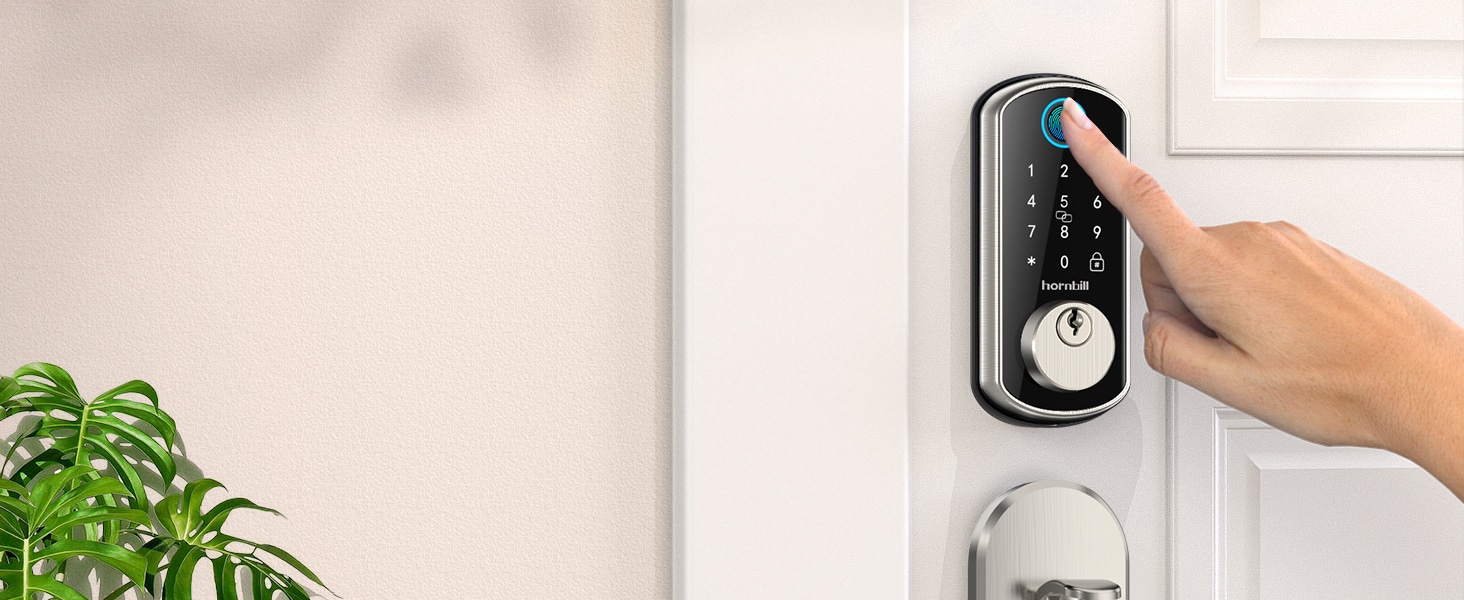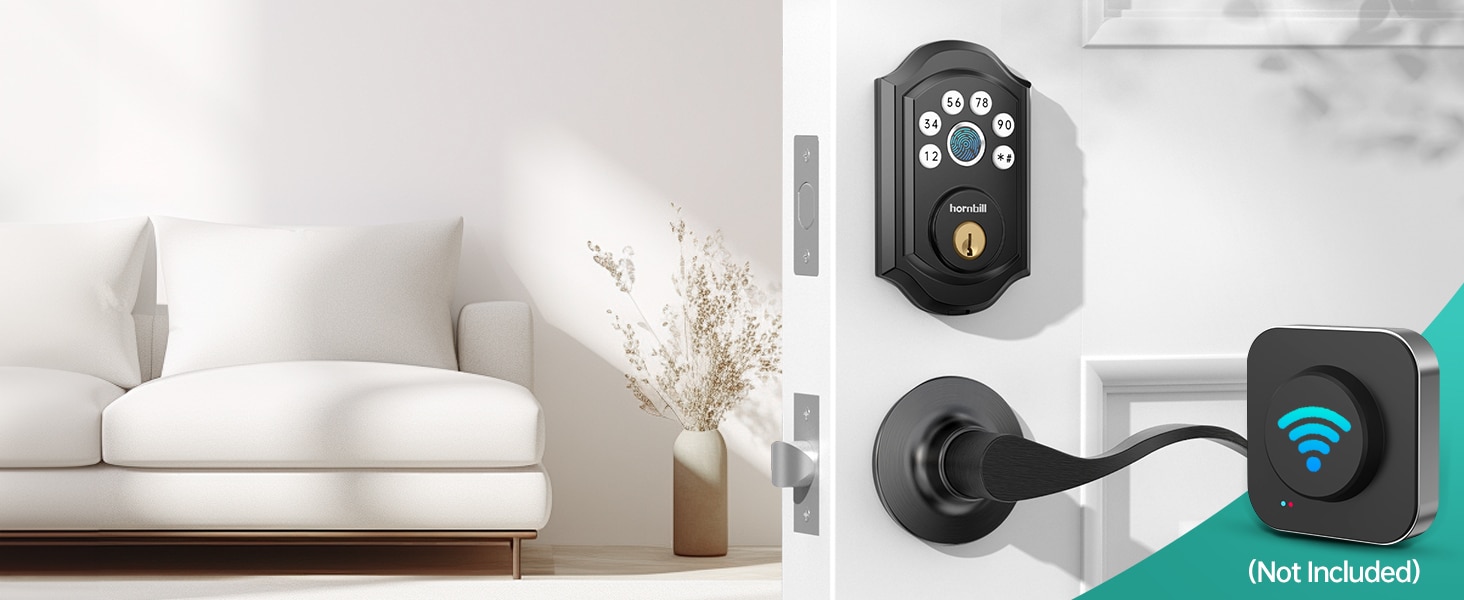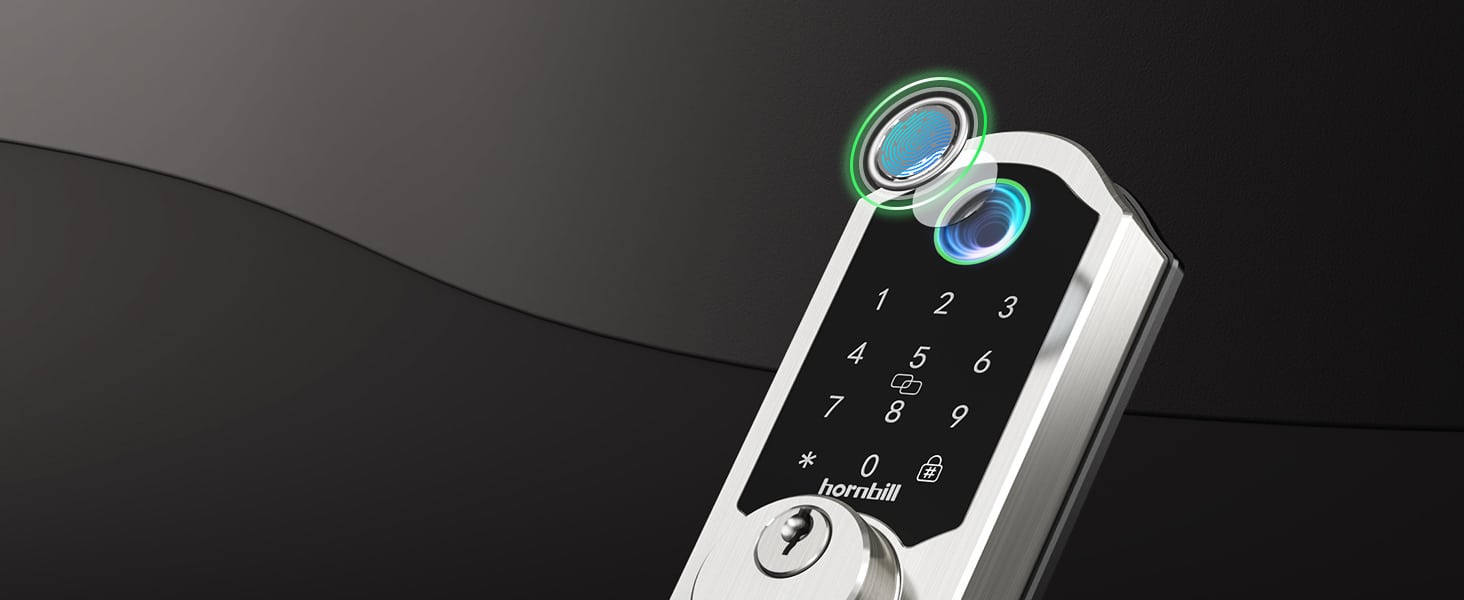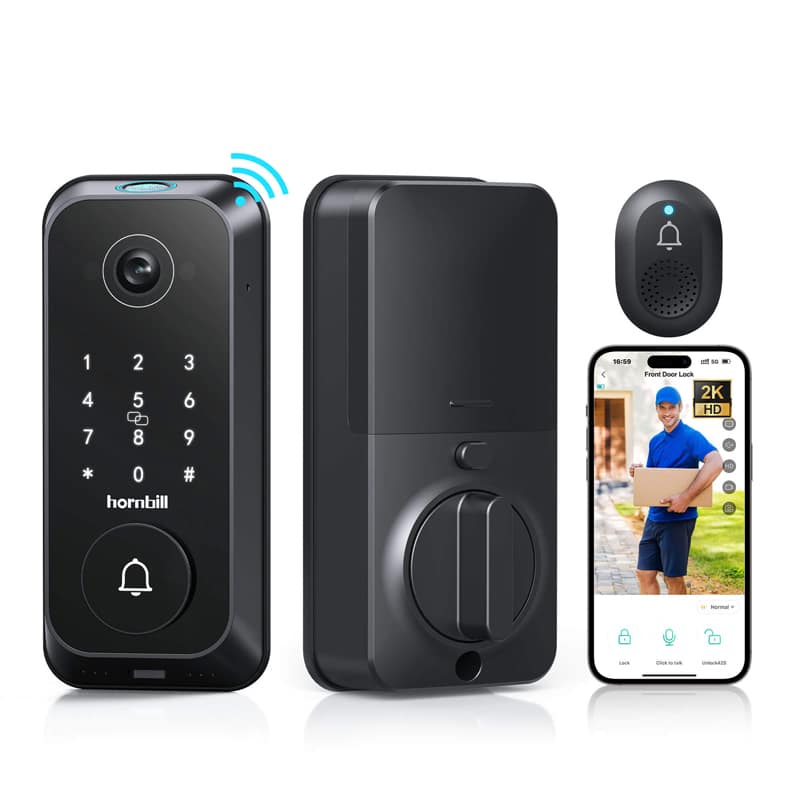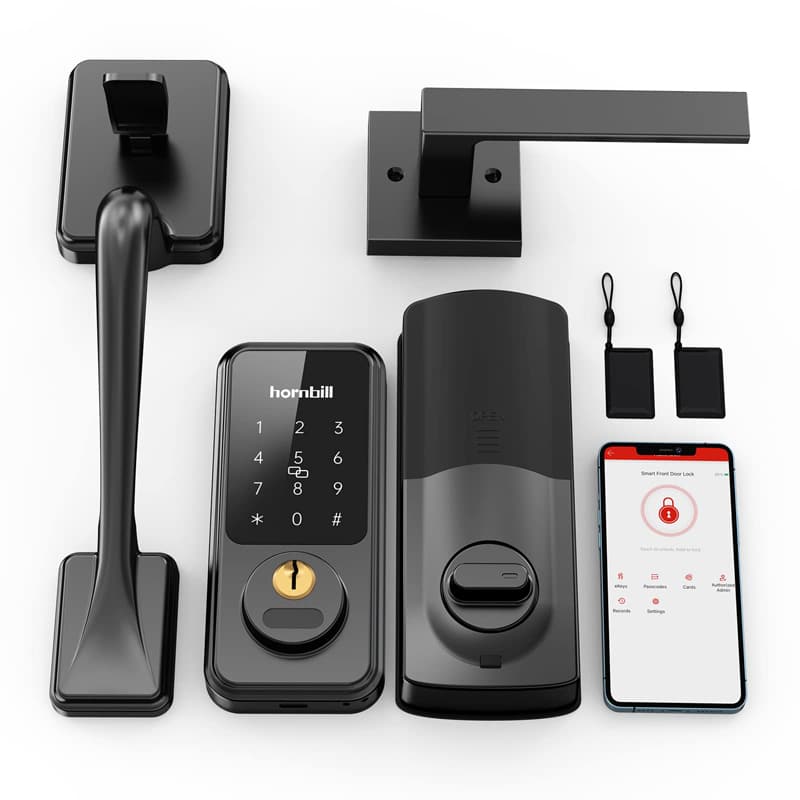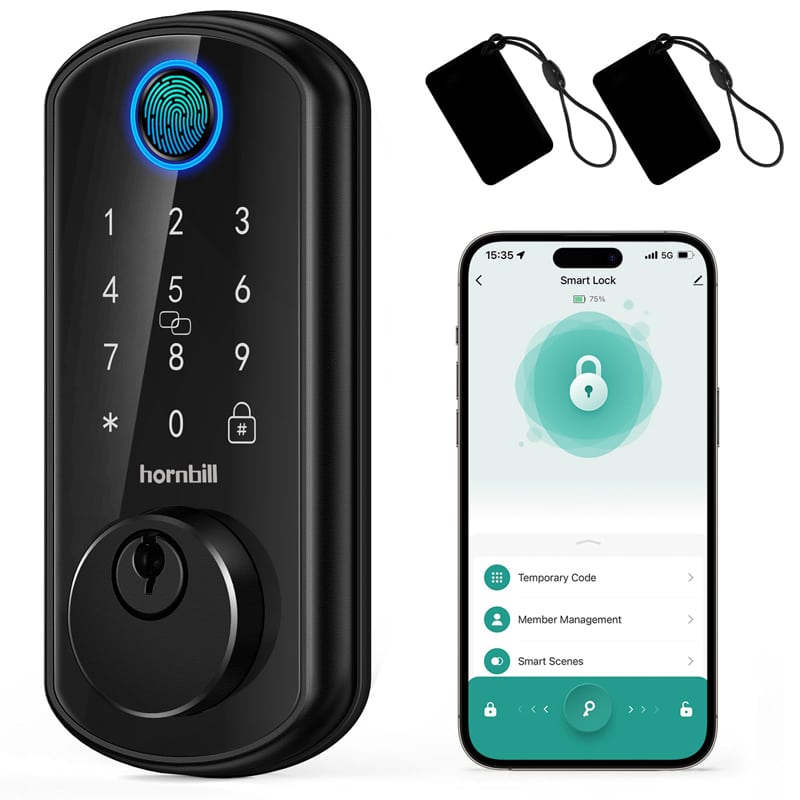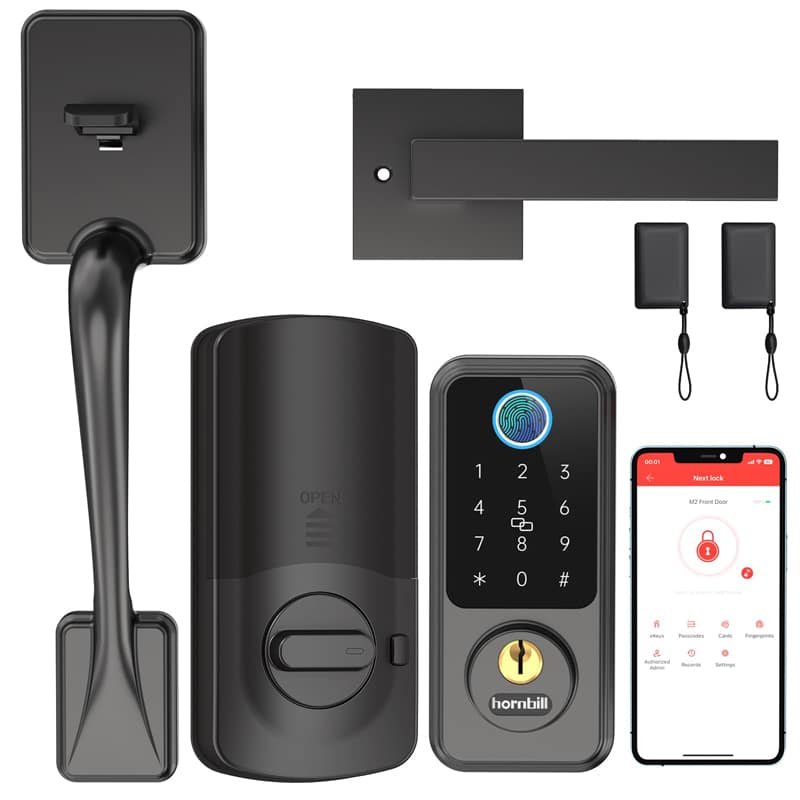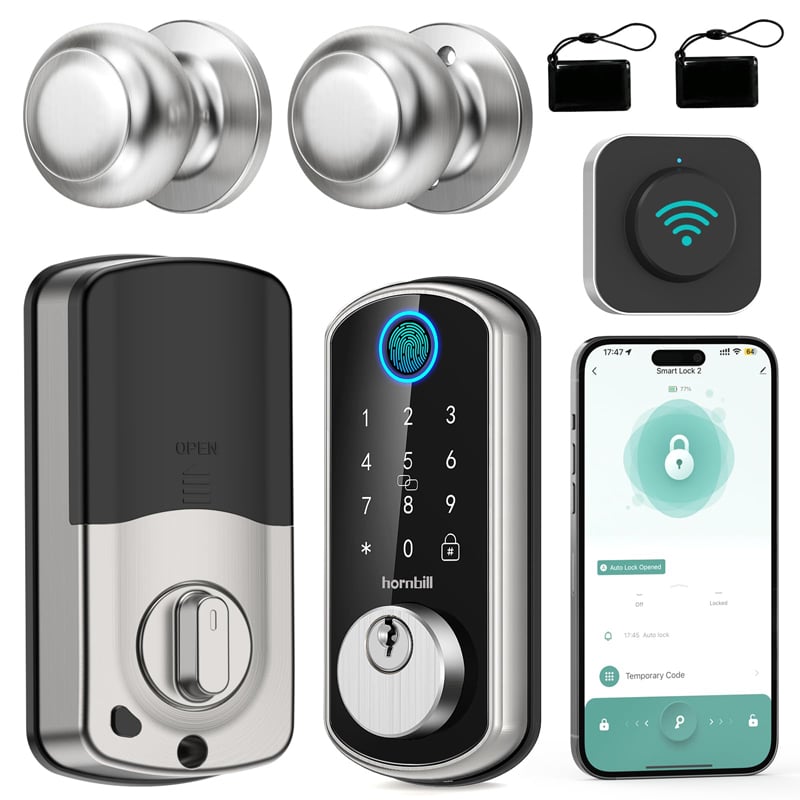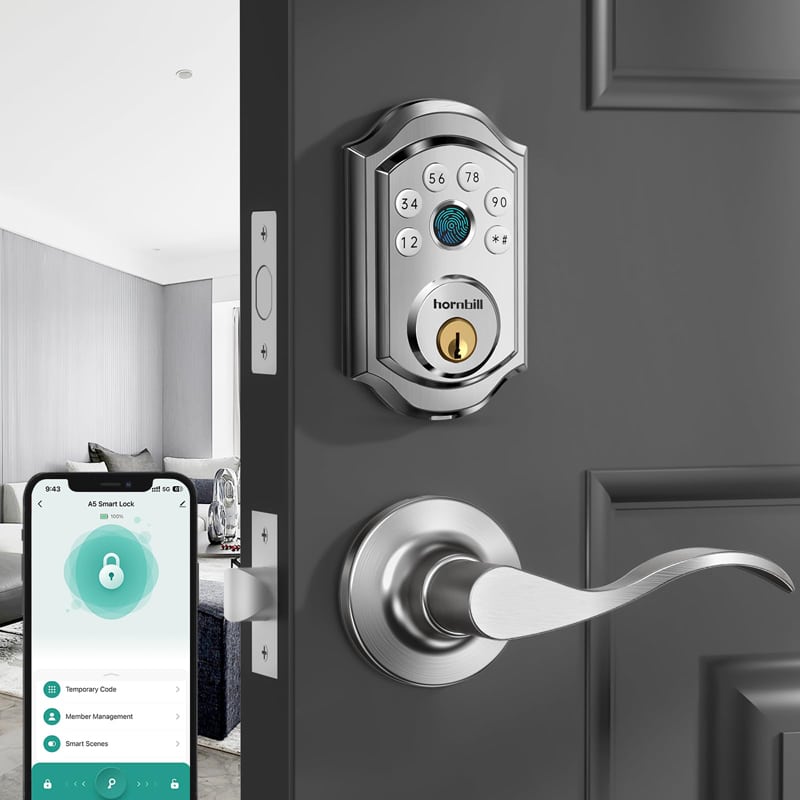Securing commercial property is an efficient way to protect both physical and intellectual assets, and it also limits access to sensitive areas. However, due to the diverse assortment of locks available in the market, you might need guidance to determine the most suitable commercial smart locks for your enterprise.
This guide aims to explain commercial door locks, helping to distinguish them from conventional residential locks. It covers different types of commercial door hardware and door locks, the main components of commercial door locks, advice on choosing a fitting business door lock system, and the benefits of installing a top-tier locking system.
At its core, a deadbolt fingerprint door lock is a robust locking device that provides excellent security for businesses. These locks are typically found on the external doors of locations such as hospitals, retail outlets, office premises, medical facilities, and storage areas. Interior spaces like storerooms containing sensitive data, classrooms, or apartment complexes also stand to gain from commercial door security.
Commercial locks are generally more durable than residential versus fingerprint door locks. According to the Builders Hardware Manufacturers Association (BHMA), a lock with a grade one rating offers enhanced strength to shield commercial properties. They can withstand weights of up to 360 lbs, ten strikes, and endure 800,000 cycles.
Small businesses possessing less valuable items or using separate video security may opt for a grade two lock. These businesses are usually located within enclosed campuses or secure areas with lower traffic volumes. Grade one locks are made from resilient metal hardware such as chrome, satin nickel, oil-rubbed bronze, bright or satin solid brass.
The grading classification distinguishes between commercial door lock systems and residential locks. A grade two lock provides sufficient security for residential properties, and deadbolts on grade two locks can endure up to 400,000 cycles and withstand weights up to 250 lbs.
Commercial Smart Locks vs. Access Control Systems
Business door locks, particularly keyless methods, instantly safeguard against unauthorized persons attempting to force or sneak their way into businesses or public spaces. Here are several benefits to consider:
Utilizing a mixture of commercial best fingerprint door lock types boosts security. Employing various grade one and two locks eliminates the necessity for a master key or universal credential. As a property owner or business manager, a variety of commercial door lock systems can help regulate the access levels individuals within the building will have.
For instance, combining keyless locking systems with video security on each entrance encircling the building’s exterior strengthens the property’s security and discourages ill-intentioned individuals from attempting unauthorized access. A keypad or alarm lock on rooms containing valuable items such as cash, inventory, personal customer data, and medical files can authorize specific individuals.
Commercial electronic locks enable customized security. The best fingerprint door lock imparts a sense of ownership over the building, needing unique credentials such as user fingerprints. Although authentic credentials cannot be duplicated, smart and biometric locks link to a digital system, making it simple to update and authenticate new credentials. This feature of commercial smart locks is perfect for onboarding processes or welcoming new tenants to commercial real estate sites.
Grade one locks are sturdy and dependable. Heavy-duty hardware acts as a deterrent to ill-intentioned individuals, given the difficulty of breaking through a grade-one lock. smart lock for commercial door fingerprint price using satin nickel, chrome, brass, and other durable materials are also resistant to weather conditions, saving the cost of replacing hardware. Traditional locking methods that employ keys, such as mortise locks, have been shown to provide reliable protection.
Video security linked to the Hornbill fingerprint door lock offers real-time observation of security. As a business owner, video security contributes to streamlining business operations. A remote door lock for commercial use can verify deliveries, maintenance, and employees operating outside regular hours, while visually confirming that the person requesting entry possesses sufficient credentials. Incredibly, about 1.7 million packages daily are stolen in the US. Video security reduces this threat’s risk. Synchronizing video and lock security enables data storage in one centralized digital hub, thereby enhancing organization.
Key Components of Commercial Electronic Lock Systems for Your Doors
Although the lock and key concept remains unchanged, technologically advanced locking systems use alternative access methods to locked spaces. These components may feature in a secure commercial access control system:
commercial smart door locks Control Panel:
This is the central management system for access control connected to commercial smart door locks systems in a building. It is the component deciding whether doors should be opened or locked.
Reader:
The reader scans or recognizes a user’s identity. The door reader then sends a signal to the control panel allowing authorized users access.
Credentials:
These access methods refer to items like a physical key, key card, fob, PIN code, or mobile smartphone app account. A radio-frequency identification (RFID) door lock for commercial buildings uses electromagnetic waves to identify and approve these credentials when held close to a scanning port.
commercial smart locks Locking Mechanism:
The system recognizes a valid credential and communicates to the door to release the lock. The locking mechanism differs, depending on the type of commercial smart locks used. For instance, the locking mechanism for a cylindrical lock differentiates from a biometric door lock.
Different types of door locks for commercial buildings possess unique locking mechanisms, door hardware, and finishes. While some require a traditional key, others are electronically powered and depend on a numerical code. Additionally, factors such as cost, security level, and aesthetic may govern your choice. The following list describes several types of best commercial electronic door lock, their functioning, and where they yield the best results.
Mortise Locks
These locks offer high-level security as they’re integrated into the door’s body rather than being installed on a door’s surface. Although more difficult to install, mortise locks provide a strong sense of safety, as the lock is tougher to break. Mortise locks are typically found at hotel complexes, office buildings, and multifamily living areas, like apartment complexes.
Electronic Commercial Door Locks for Buildings
Electronic locking systems or electric door locks for commercial buildings use a wired or battery power supply to control the locking mechanism instead of a physical key. Some electronic locks, also known as electronic smart locks, can use WiFi or Bluetooth connection to devices like smartphones, tablets, or computers. Electronic locks for commercial doors should either have a backup battery installed or a backup manual locking system in the event of a power outage.
Multiple variables govern the selection of the best fingerprint door lock for your commercial space, including the traffic volume entering and leaving the building or room, the contents of the building, and its location. Other factors like budget and design can also influence your choice. Here are several steps to follow when choosing Commercial Smart Locks:
Evaluate the necessary security level for your building
Determine the users of the commercial door lock system
Review prices for business door lock systems
Link commercial and office door lock systems to other security systems
Disclaimer: This article provides a general overview of why the US is a favorable market for smart locks. However, this does not guarantee success, as market performance can still be influenced by a variety of factors, including competition, product quality, and marketing strategies.


